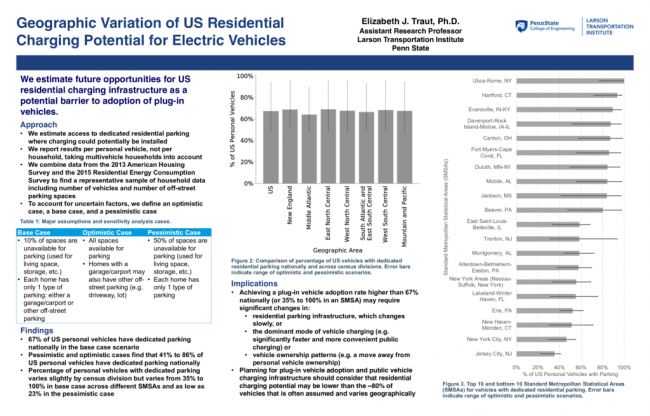Electric vehicles, in combination with a decarbonized electric grid, are an important strategy to shift US transportation energy use away from fossil fuels and towards cleaner sources. However, lack of residential charging opportunities could be a major barrier to high levels of plug-in vehicle adoption, since the current charging paradigm relies heavily on overnight charging and most drivers prefer it. We assess potential charging infrastructure for electric vehicles at households across the US using data from the 2013 American Housing Survey (AHS) and the 2015 Residential Energy Consumption Survey (RECS). We estimate that 67% of vehicles have access to a dedicated home parking space where charging infrastructure could be installed. This value is highly uncertain and varies from 41% to 86% depending on assumptions made for unknown parameters. Further, availability varies by as much as 48% across the US and planning for vehicle charging infrastructure should take local residential parking infrastructure into account. Future predictions or proposed scenarios of plug-in vehicle adoption that ignore the limited availability of US residential charging infrastructure opportunities are likely to overestimate the potential market for personally-owned plug-in vehicles, underestimate public charging needs, overestimate shifts in transportation energy use, and overestimate potential reductions in carbon emissions.
Day
Tuesday Poster Session
Related Conference Themes
Built Environment
Transportation


